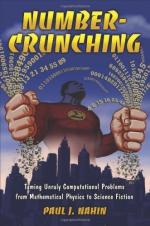|
This section contains 423 words (approx. 2 pages at 300 words per page) |

|
Until the end of the nineteenth century, the people who studied mathematics and those who studied physics would probably not have separated themselves out professionally. Both would have called themselves "natural philosophers," and many of them did research work in both fields. The Greeks who did much original work in geometry also formulated many theorems about the physical world around them, most memorably in Archimedes' bathtub revelation about the calculation of volume. The Arabic scholars who invented algebra also preserved what texts remained of Greek physics. However, it was in the person of Isaac Newton that mathematics and physics were most completely united. Newton's physics informed his mathematics. The study of the rate of change in calculus was necessary for the Newtonian theory of mechanics. While it is still not yet well-determined whether Newton or Leibniz originally formulated calculus, Newton was the one who...
|
This section contains 423 words (approx. 2 pages at 300 words per page) |

|


